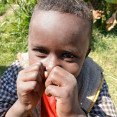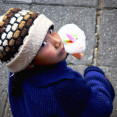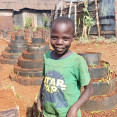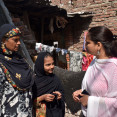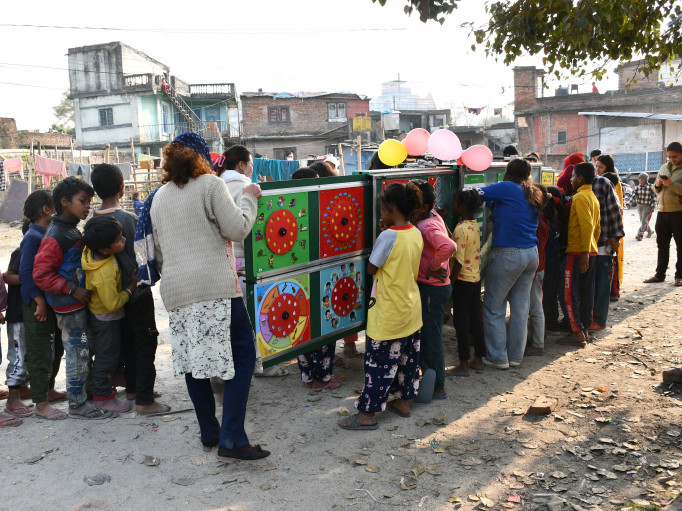
Back in March, Toybox began trialling a new educational tool in Nepal’s capital Kathmandu. The Mobile School - a set of interactive blackboards on wheels, was incorporated into the Road to Education project, to help reach more street children lacking access to traditional educational settings.
The Mobile School, developed by Mobile School Belgium and run by Toybox’s local partner SathSath, focuses on providing non-formal education as well as helping street children integrate into the mainstream education system. Bishnu, (pictured below, right) an Educator at the project explains, “Our goal is to support the children to become literate and able to enrol at school. In the beginning everyone (including the project staff!) were very excited by the Mobile School – the children would ask, ‘What is this? Why are you bringing it? Will you bring it every day? Do we need to pay for it?’ In the squatter and slum areas where we work the level of education is mixed - some of the children go to school every day, some children will have dropped out of school, while others have never been. The project normally runs sessions three times a week and is currently supporting children aged from six to 18.”
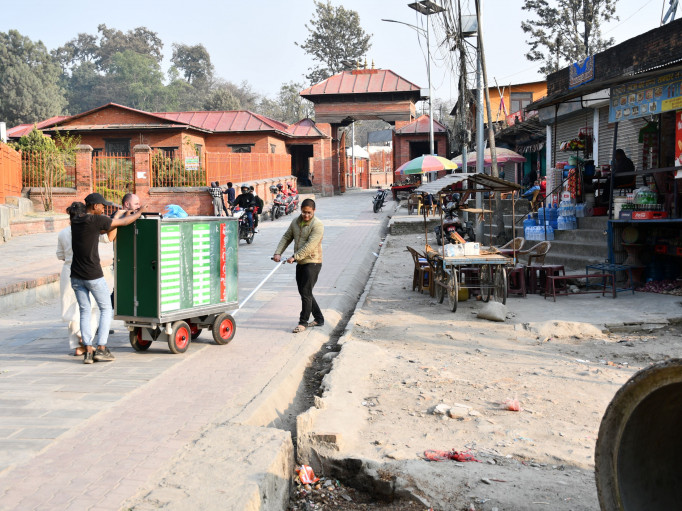
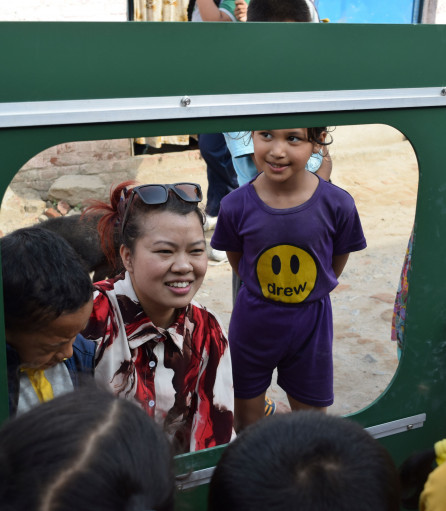
By bringing education directly to the city streets and meeting children where they are, the project team are supporting and engaging with even more street children. Another significant advantage of the Mobile School tool is its adaptability. Unlike conventional schools, which are fixed in one location, this mobile ‘classroom on wheels’ is brought to different disadvantaged areas of the city, where it can adapt the lessons and curriculum to suit local needs. The tool also helps to bridge the existing educational gap, giving marginalised street children the opportunity to gain essential knowledge, confidence and skills they may otherwise not receive. Bishnu explains, “There are 200 panels on the Mobile School that we can select from - before the sessions, the team change the panels according to the needs and interests of the children. We usually teach children through pictures and games and cover topics like child rights, life skills, maths, culture, science and the Nepali language.”
While the Mobile School has the potential to revolutionise access to education for street children, Bishnu shared that the team have encountered some challenges during the early start-up phase of the project. “Although all of the boards and resources are weatherproof, we have had to postpone planned sessions when the rain has been too heavy to meet with the children. In addition, we are not always able to see the children we expected, due to the transient nature of street children, who often roam around during the day.”
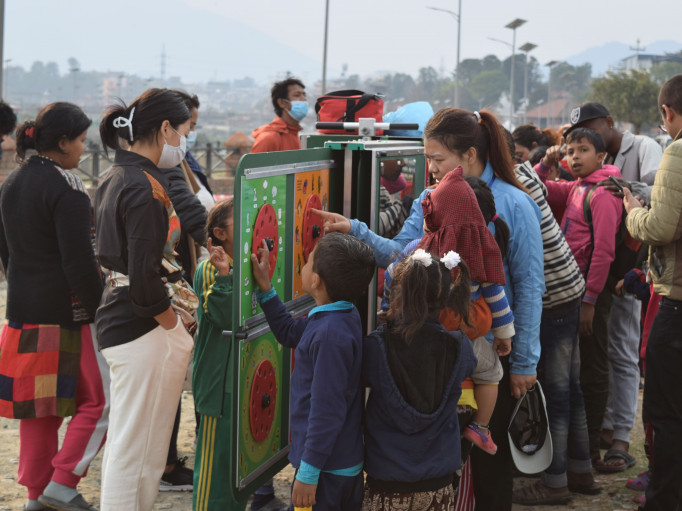
To make the sessions as accessible as possible, the mobile school sessions are delivered in public spaces in the community, where street children often go. However, due to this openness, lessons can be interrupted by other local people. The Mobile School is also very heavy so requires a lot of people power to move it.
Despite the initial teething issues, the project has seen a promising start and is already seeing significant take-up. It’s clear there is a real appetite for learning amongst the children, as Bishnu explains, “Sometimes even though they are very small, the children try to help pull the classroom into position - we don’t allow them though as it is so heavy and only trained volunteers or staff can do it. When heavy rainfall postponed sessions, children turned up at our learning centre - they don’t care about the challenges – they just want to be engaged in the mobile school!”
Find out more:
Meet project participant Soneeya Learn more about Toybox's work in Nepal
